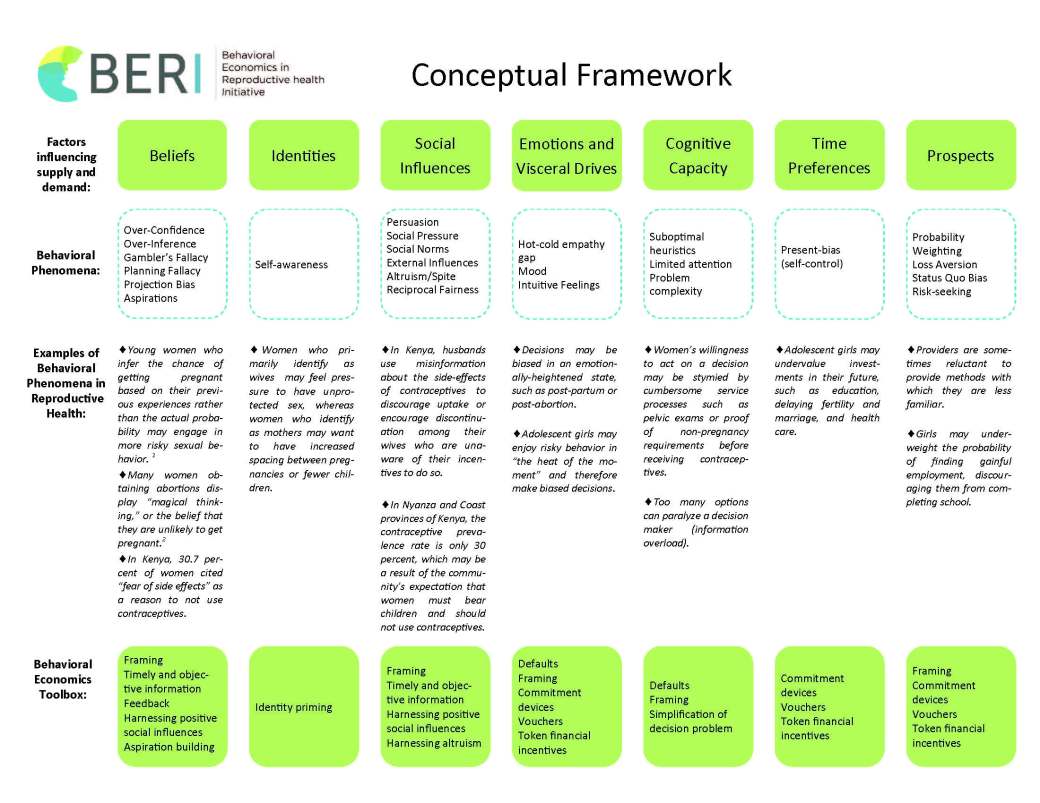What is Behavioral Economics?
Behavioral Economics is a branch of economics that considers and implements the psychological insights from human behavior to generate a more realistic model of decision-making. While the standard economic model assumes individuals act in their best interest, there are several circumstances in which human behavior deviates from this model. Learn more about these deviations and the tools Behavioral Economists have developed to help change behavior and realign individuals’ actions with their best interests.
What is Reproductive Health?
“Reproductive health…implies that people are able to have a satisfying and safe sex life and that they have the capability to reproduce and the freedom to decide if, when and how often to do so. Implicit in this last condition are the right of men and women to be informed and to have access to safe, effective, affordable and acceptable methods of family planning of their choice, as well as other methods of their choice for regulation of fertility which are not against the law, and the right of access to appropriate health-care services that will enable women to go safely through pregnancy and childbirth and provide couples with the best chance of having a healthy infant.” (ICPD Plan of Action, 1994).
Leveraging Behavioral Economics to Overcome Reproductive Health Barriers
While access to reproductive health and family planning services remains a barrier, uptake of these service remains low even where they are available. This indicates that behavioral constraints prevent men and women from achieving their desired reproductive outcomes. The table below maps how several tools in behavioral economics can be applied to the current challenges in reproductive health and family planning today.
You can find explanations of each behavioral phenomenon here.
For more information on Behavioral Economics or Reproductive Health visit our resources page.
